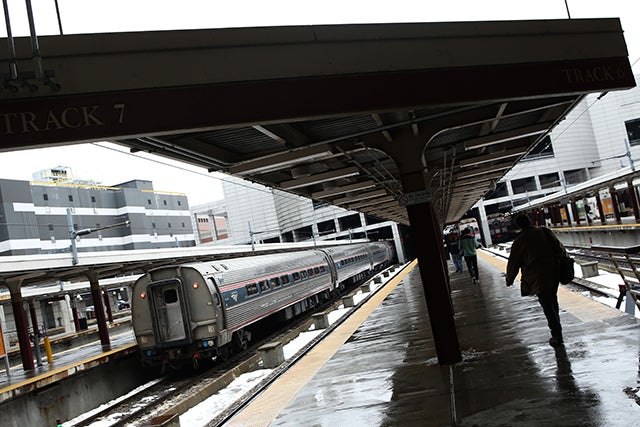Happy Birthday, Amtrak! Here Are Your Presents. Love, The Taxpayers.
Emily Goff /
Amtrak, the federally subsidized passenger rail service, made headlines in recent months after an Inspector General report said it offered $428,000 worth of free wine, cheese, and champagne on several of its long-distance routes in 2012. Those freebies were only part of Amtrak’s total food and beverage service losses of $72 million that year. Amtrak has made improvements—losses were $105 million in 2006—but it’s hard to imagine a private company surviving six plus years losing that kind of cash on just its food service.
That’s where Amtrak’s federal operating subsidies come into play.
Taxpayers forked over $470 million to subsidize Amtrak’s operations (they also sent $920 million in capital subsidies). Again, these operating subsidies have decreased over time as Amtrak has found ways to cut operating costs. But it does not make sense for taxpayers to subsidize a money-losing, passenger rail service that serves select communities, particularly when similar commuter rail lines have successfully contracted out their operations to private companies and dramatically lowered their costs. The Maryland Area Rail Commuter (MARC) and Virginia Railway Express (VRE) are just two examples of this positive reform.
Amtrak’s operating subsidies remove some of its incentives to control costs and provide consistent, top-notch service. If Apple, Inc. or the Coca-Cola Company ran losses of a relative magnitude to their budgets, they would have to make whatever changes necessary to stop the losses, because, in the private sector, losing money due to poor management, unnecessarily high costs, or a poor product or service isn’t an option.
But union labor agreements, subsidies, and other obstacles are holding up much-needed reforms at Amtrak.
Heading in the opposite direction of reform, President Obama released a deeply flawed transportation plan yesterday, which would latch passenger rail, including Amtrak, onto the traditional highway bill. This “unified” or mode-neutral approach marks an irresponsible plan that would put the agendas of influential special interests, bureaucrats, and politicians above challenges faced by commuters and travelers on the ground in local communities. The money would follow.
It remains to be seen if standalone passenger rail reauthorization legislation comes up this year. If so, Congress should implement reforms that require competitive contracting at Amtrak for it to receive continued operating subsidies. Simultaneously, Congress and the administration should work with Amtrak to devise a plan to cut costs, improve service, and put it in a position to be able to bid out the operations of some or all of its lines.

